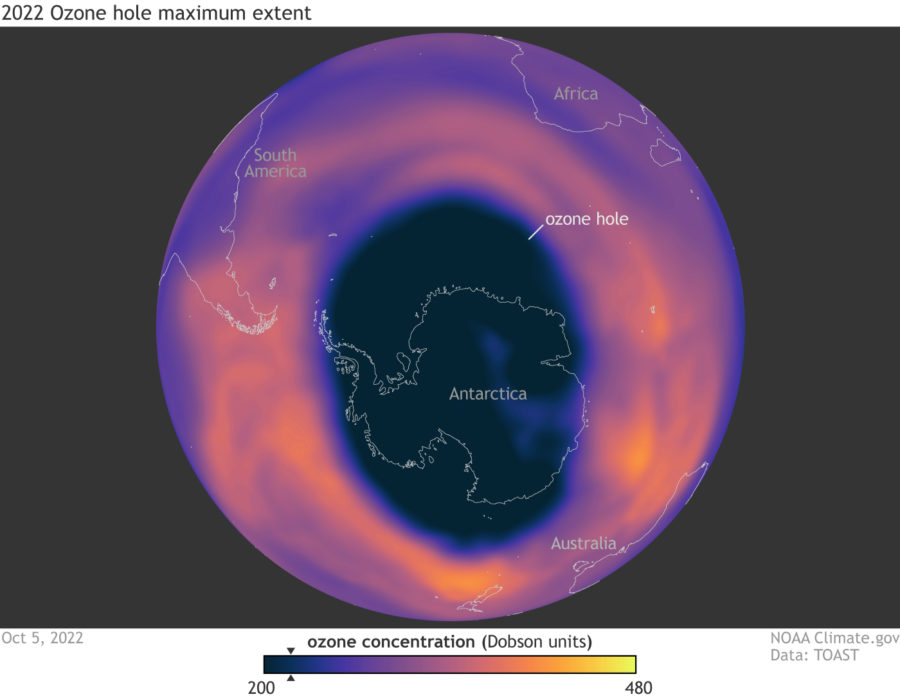After decades of damage, ozone layer to heal by 2066
The United Nations Environment Program recently reported that the ailing ozone layer is now predicted to fully heal by 2066 thanks to emission controls
May 21, 2023
The ozone layer is healing.
In January 2023, the United Nations Environment Programme reported that the ozone layer is currently on track to recovery and is predicted to globally heal by 2066 – something attributed to intensive global initiatives intended to prohibit the emission of harmful chemicals such as CFCs.
Biology teacher Jack Reardon commented, “This is a really great development,” noting that the ozone protects from environmental damage and skin cancer risk.
Interestingly, some students ostensibly seem unaware of this newfound information.
A small poll of 25 students held in May across two frosh-soph biology classes found that only 25 percent of students believed the ozone layer was in a healthy state, with the majority believing it to be in a “bad” or “very bad” state.
AP Environmental Science teacher Michael O’Brien attributes this to two causes: 1. residual concerns from the initial campaign to save the ozone in the 70s and 80s, and 2. the Information Age allows for wider access to viscerally worrying statistics and data.
But he clarified this wasn’t the result of hysteria – rather, it was the result of aggressive awareness campaigns from when the ozone was in danger – campaigns needed to spur meaningful action.
As for what humans did right with the ozone layer, O’Brien gave two primary reasons. First, when not being actively destroyed by CFCs – ozone-damaging compounds once common in products like aerosols – the ozone will naturally repair itself.
Second was “very quick acting, intelligent policy, [and] consultation with scientists, economists, and market specialists.”
He further emphasized the importance of creating a viable, sustainable long-term solution that doesn’t seriously impact the day-to-day life of regular people.
For this very reason, O’Brien stressed that global warming will be far more difficult to combat, designating it “a much different animal to wrestle,” largely because of the complex economic and societal implications of cutting back on fossil fuels.
For policy to gain unanimous support, he said, leaders must “at least give people the illusion that they are not being inconvenienced.”
While the “climate change success story” of the ozone layer can be replicated, it will not be an easy task. Seemingly contradictory policies that are gentle yet effective, revolutionary yet stable, won’t just be advisable – they will be necessary.

